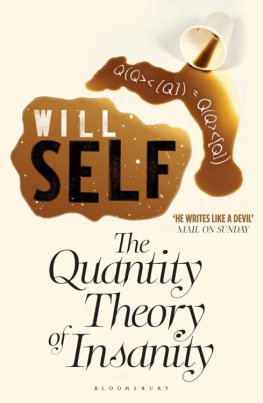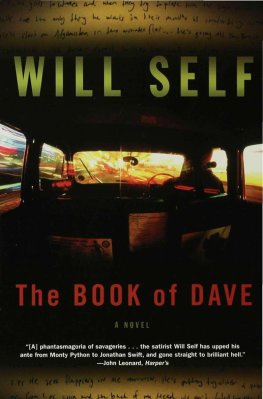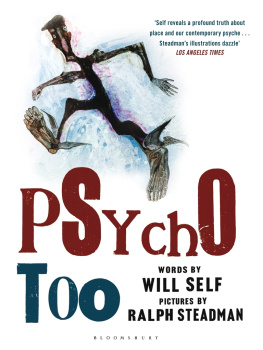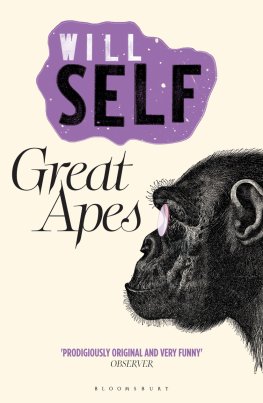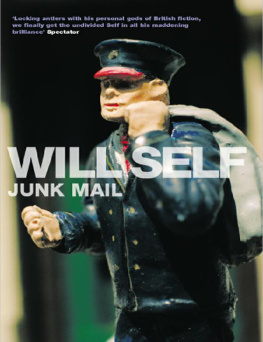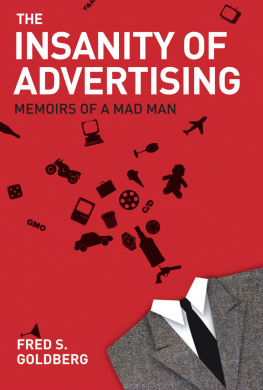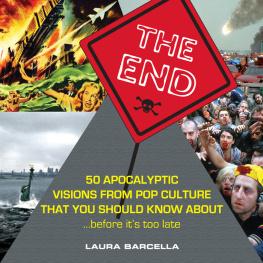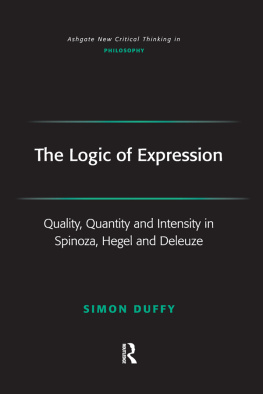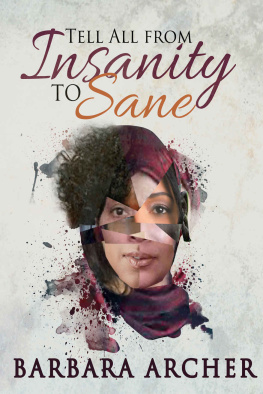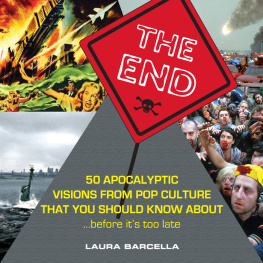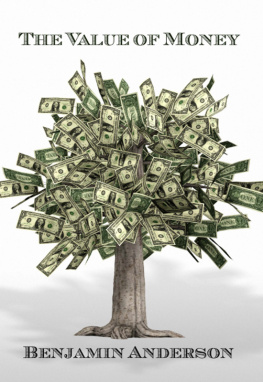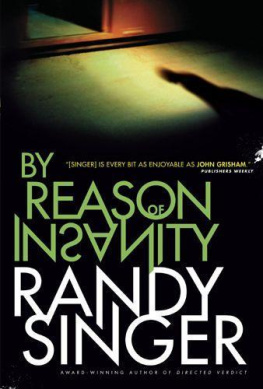Will Self
The Quantity Theory of Insanity: Reissued
For K.S.A.S who knows the stranger truth behind these fictions
However far you may travel in this world, you will still occupy the same volume of space.
Traditional Ur-Bororo saying
The North London Book of the Dead
I suppose that the form my bereavement took after my mother died was fairly conventional. Initially I was shocked. Her final illness was mercifully quick, but harrowing. Cancer tore through her body as if it were late for an important meeting with a lot of other successful diseases.
I had always expected my mother to outlive me. I saw myself becoming a neutered bachelor, who would be wearing a cardigan and still living at home at the age of forty, but it wasnt to be. Mothers death was a kind of a relief, but it was also bizarre and hallucinatory. The week she lay dying in the hospital I was plagued by strange sensations; gusts of air would seem personalised and, driving in my car, I had the sensation not that I was moving forward but that the road was being reeled back beneath the wheels, as if I were mounted on some giant piece of scenery.
The night she died my brother and I were at the hospital. We took it in turns to snatch sleep in a vestibule at the end of the ward and then to sit with her. She breathed stertorously. Her flesh yellowed and yellowed. I was quite conscious that she had no mind any more. The cancer or so the consultant told me had made its way up through the meningitic fluid in the spine and into her brain. I sensed the cancer in her skull like a cloud of inky pus. Her self-consciousness, sentience, identity, what you will, was cornered, forced back by the cloud into a confined space, where it pulsed on and then off, with all the apparent humanity of a digital watch.
One minute she was alive, the next she was dead. A dumpy nurse rushed to find my brother and me. We had both fallen asleep in the vestibule, cocooned within its plastic walls. I think shes gone, said the nurse. And I pictured Mother striding down Gower Street, naked, wattled.
By the time we reached the room they were laying her out. I had never understood what this meant before; now I could see that the truth was that the body, the corpse, really laid itself out. It was smoothed as if a great wind had rolled over the tired flesh. And it, Mother, was changing colour, as I watched, from an old ivory to a luminous yellow. The nurse, for some strange reason, had brushed Mothers hair back off her forehead. It lay around her head in a fan on the pillow and two lightning streaks of grey ran up into it from either temple. The nurses had long since removed her dentures, and the whole ensemble Mother with drawn-in cheeks and sculpted visage, lying in the small room, around her the loops and skeins of a life-supporting technology made me think of the queen of an alien planet, resplendent on a high-tech palanquin, in some Buck Rogers style sci-fi serial of the Thirties.
There was a great whooshing sensation in the room. This persisted as a doctor of Chinese extraction long, yellow, and divided at the root felt around inside her cotton nightie for a non-existent heartbeat. The black, spindly hairs on his chin wavered. He pronounced her dead. The whooshing stopped. I felt her spirit fly out into the orange light of central London. It was about 3.00 a.m.
* * *
When I began to accept the fact that Mother really was gone, I went into a period of intense depression. I felt that I had lost an adversary. Someone to test myself against. My greatest fan and my severest critic and above all a good talker, who I was only just getting to know as a person shorn of the emotional prejudices that conspire to strait-jacket the relationships between parents and children.
When my depression cleared the dreams started. I found myself night after night encountering my mother in strange situations. In my dreams she would appear at dinner parties (uninvited), crouched behind a filing cabinet in the office where I worked, or on public transport balefully swinging from a strap. She was quite honest about the fact that she was dead in these dreams, she made no attempt to masquerade as one of the living, rather she absorbed the effect that death had had on her personality much the way she had taken the rest of the crap that life had flung at her: a couple of failed marriages and a collection of children who, on the whole, were a bit of a disappointment to her.
When I tried to remonstrate with her, point out to her that by her own lights (she was a fervent atheist and materialist), she ought to be gently decomposing somewhere, she would fix me with a weary eye and say in a characteristically deadpan way, So Im dead but wont lie down, huh? Big deal.
It was a big deal. Mother had banged on about her revulsion at the idea of an afterlife for as long as I could remember. The chief form that this took was an extended rant aimed at all the trappings of death that society had designed. She despised the undertaking business especially. To Mother it was simply a way of cheating money out of grieving people who could ill afford it.
She had told me a year or two before she died that if it was at all possible I was to try and give her a kind of do-it-yourself funeral. Apparently the Co-op retailed one that allowed you to get the cost of the whole thing down to about 250. You had to build your own casket though and I was never any good at anything remotely practical. At school it took me two years to construct an acrylic string-holder. And even then it wouldnt work.
So, after Mother died we arranged things conventionally, but austerely. Her corpse was burnt at Golders Green Crematorium. My eldest brother and I went alone knowing that she would have disapproved of a crowd. We sat there in the chapel contemplating the bottom-of-the-range casket. One of the undertakers came waddling down the aisle, he gestured to us to stand and then moved off to one side, conspicuously scratching his grey bottom, either inadvertently or because he considered us of no account. Electric motors whirred, Mother lurched towards what, to all intents and purposes, was her final resting place.
A week or so later when I was going through more of Mothers papers I found a newspaper clipping about the DIY funeral. I threw it away guiltily. I also found a deposit book that showed that mother had invested 370 in something called the Ecological Building Society. I phoned the society and was told by a Mr Hunt that it was true. Mother had been the owner of a seventh of a traditional Mongolian yurt, which was sited for some reason in a field outside Wincanton. I told Mr Hunt to keep the seventh; it seemed a suitable memorial.
Meanwhile, the dreams continued. And Mother managed to be as embarrassing in them as she had been alive, but for entirely different reasons. With death she had taken on a mantle of candour and social sharpness that I tended to attribute to myself rather than her. At the dream dinner parties she would make asides to me the whole time about how pretentious people were and what bad taste they displayed, talking all the while in a loud and affected voice which, needless to say, remained inaudible to her subjects. After a while I ceased trying to defeat her with the logic of her own extinction; it was pointless. Mother had long since ceased to be susceptible to reasoning. I think it was something to do with my father, a man who uses dialectics the way the Japanese used bamboo slivers during the war.
About six months after Mothers death the dreams began to decline in frequency and eventually they petered out altogether. They were replaced for a short while by an intense period during which I kept seeing people in the street who I thought were Mother. Id be walking in the West End or the City and there, usually on the other side of the road, would be Mother, ambling along staring in shop windows. I would know it was Mother because of the clothes. Mother tended to wear slacks on loan from hippopotami, or else African-style dresses that could comfortably house a scout troop. She also always carried a miscellaneous collection of bags, plastic and linen, dangling from her arm. These were crammed with modern literature, groceries and wadded paper tissues.

